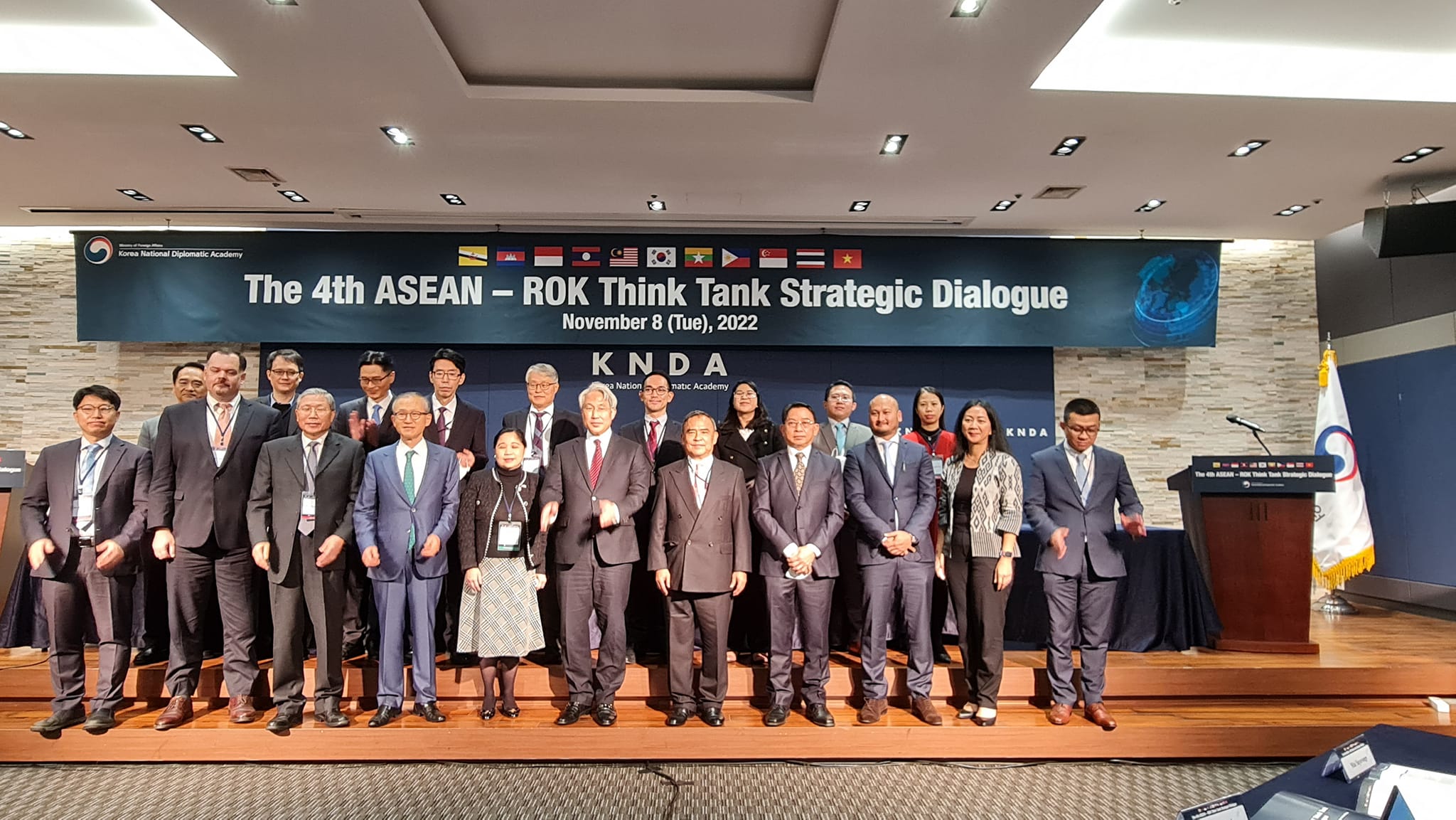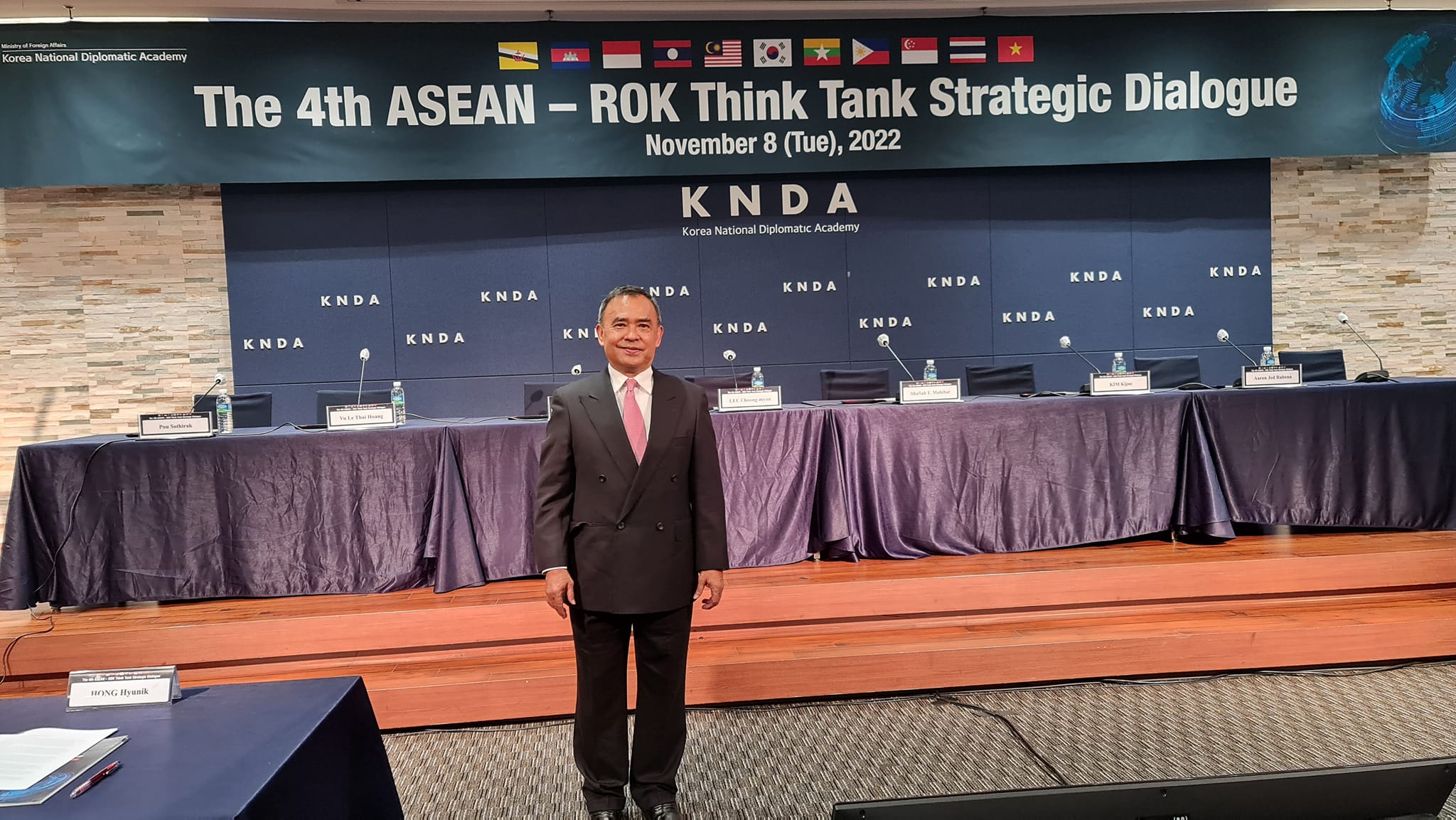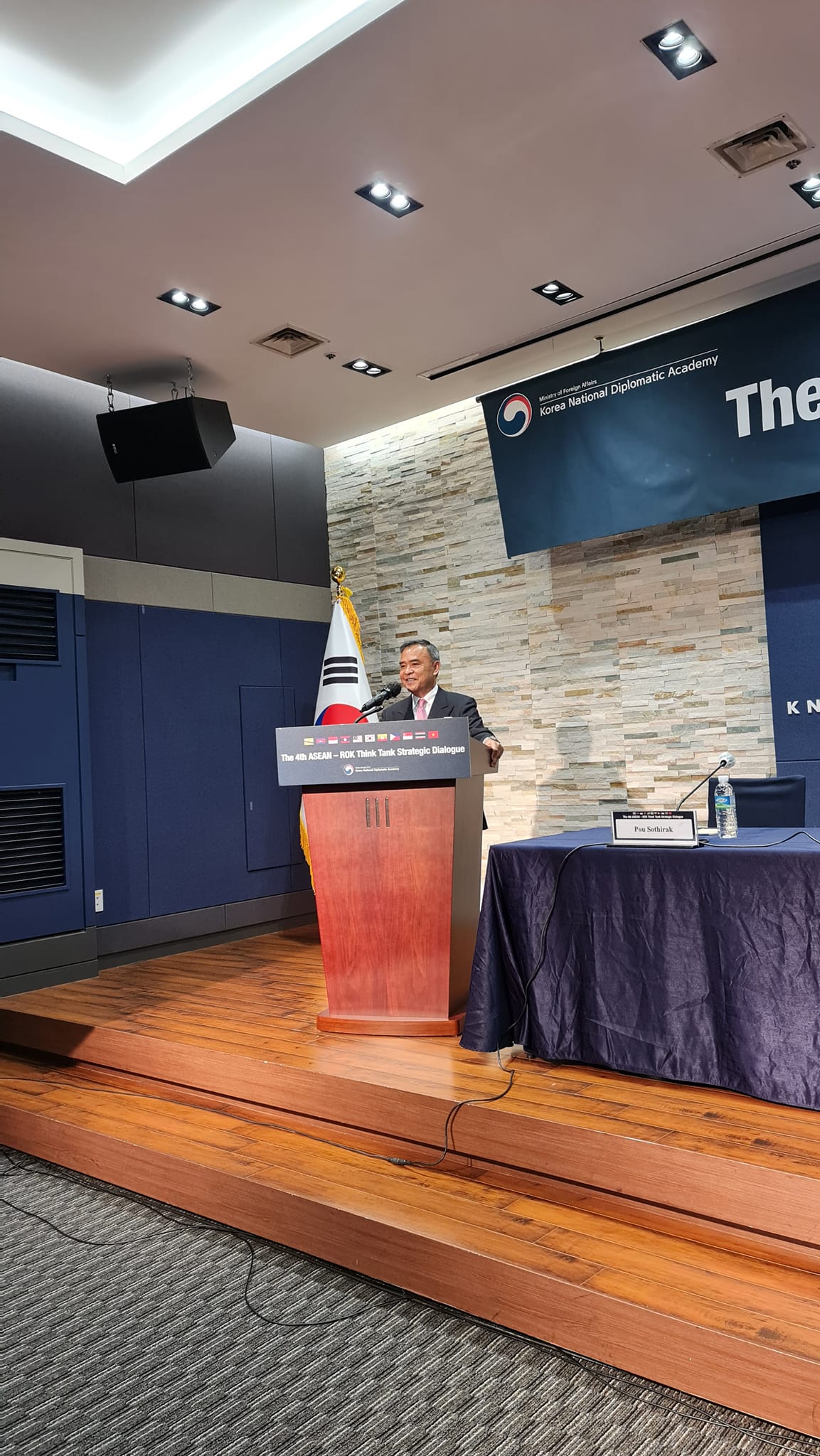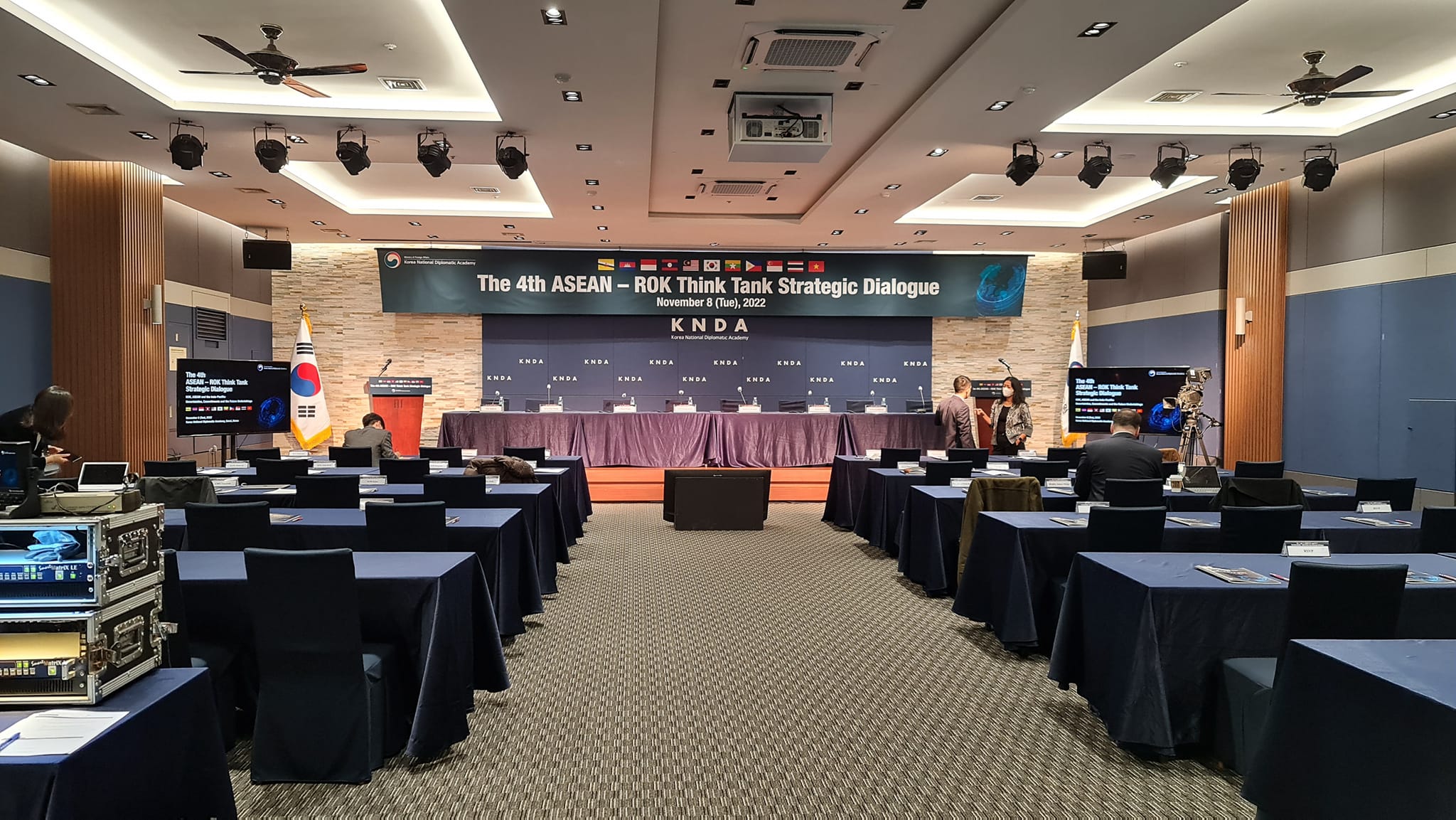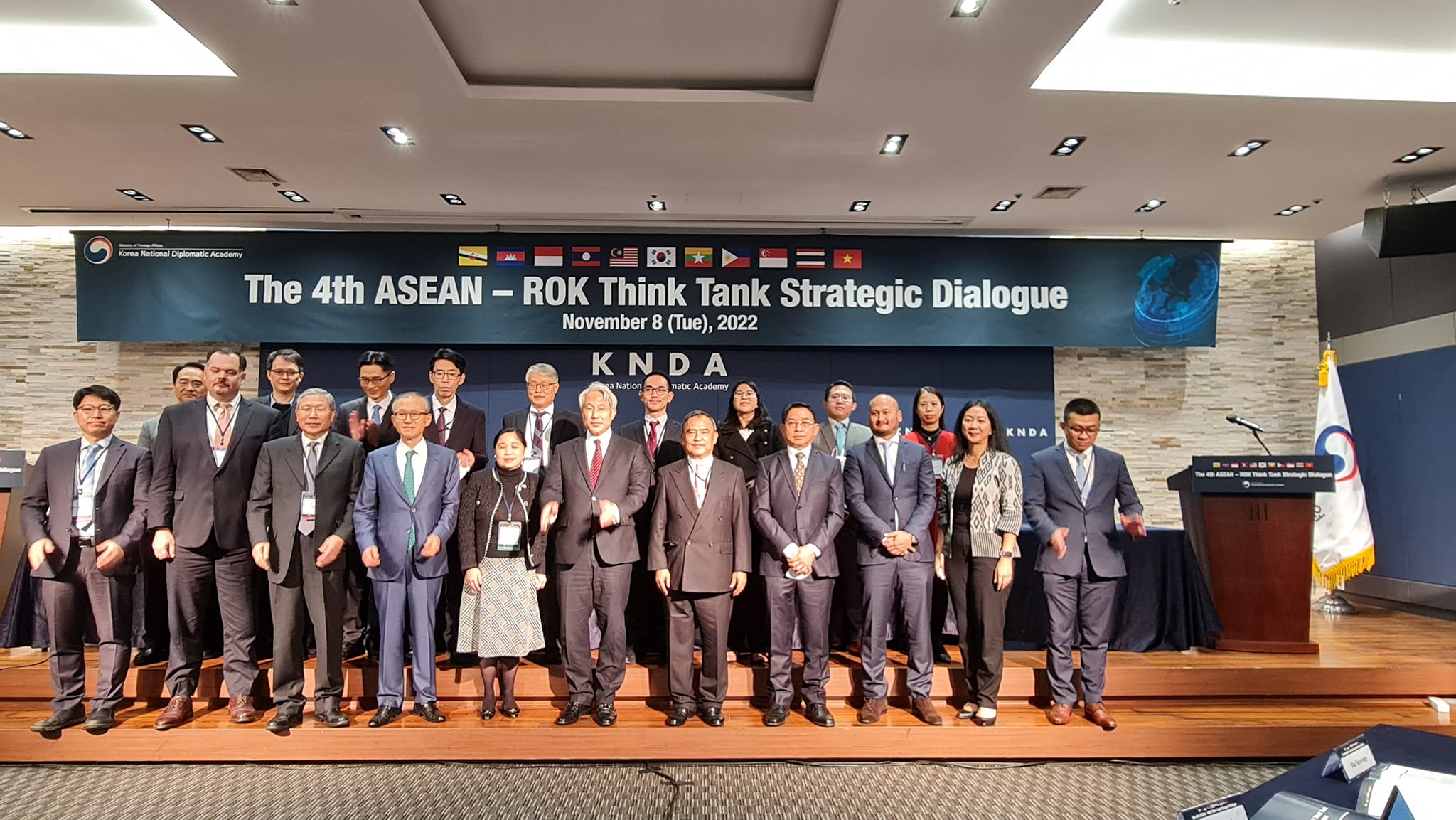International Conference co-organized by Korea National Diplomatic Academy (KNDA) and CICP Cambodia. The ROK, ASEAN, and the Indo-Pacific: Uncertainties, Commitments, and the Future Undertakings
The Cambodian Institute for Cooperation and Peace (CICP) is particularly privileged to be chosen to collaborate with the Korean National Diplomatic Academy (KNDA) to organize an International Conference under the theme of “ROK, ASEAN and the Indo-Pacific: Uncertainties, Commitments and the Future Undertakings” in Seoul, Korea to engage eminent experts from Korea and ASEAN – ISIS network in an open and frank dialogue to enhance mutual understanding and explore new ideas to further solidifying cooperation between ROK and ASEAN amidst growing geostrategic uncertainty looming in the Indo-Pacific region.
The contour of the regional security environment entraps regional powers such as the Association and Southeast Nations (ASEAN) and the Republic of Korea (ROK) within the vortex of the US-led Indo-Pacific strategy. This strategy is playing out in the heart of the Indo-Pacific region, home to nearly two-thirds of the world’s economy and numerous latent flashpoints, representing both opportunities as well as challenges for countries along the Pacific coastlines to the Indian ocean. In fact, the emergence of such a strategy can be attested to the ever-deepening of the US-China rivalry.
ASEAN has been relentless in trying to secure the security and economic architecture in Southeast Asia and beyond with the ASEAN-led mechanisms as platforms for Indo-Pacific dialogue and cooperation. Conversely, ASEAN aspires to play the role of an honest broker in dealing with competing powers in the region amidst lingering concerns of declining ASEAN relevance and disunity.
The Republic of Korea, on the other hand, has been pursuing for decades main foreign policies that gear toward fostering sound security relations with the United States and close economic partnerships with China. Not surprisingly, while ASEAN has its own version of the Indo-Pacific policy called the ASEAN Outlook on the Indo-Pacific (AOIP), the ROK is apparently in the process of mapping one. The ROK shares Washington’s regional vision, especially in preventing potential threats to a free and open Indo-Pacific.
The inauguration of the new Korean President Yoon Suk-Yeol on 10 May 2022 provides a new discussion that Seoul may opt to openly support the US-led Indo-Pacific strategy by taking a bolder step to carve out a greater role for itself in regional and global affairs, particularly in the security realm adapting toward the emerging strategic initiative of global comprehensive strategic alliance beyond the Korean Peninsula.
Whether President Yoon’s initiative envisions a greater role in the security realm in the Indo-Pacific or whether ASEAN can exert greater centrality to manage effectively the contest of power competition between the US and China or not, both South Korea and ASEAN must heighten their collaboration even closer for their forward-looking undertaken so as to converge on the strategic space to advance freedom, peace, and prosperity in the Indo-Pacific region and beyond away from uncertainties, instability and ambiguous future.
ASEAN is very much looking forward to the new ROK’s Indo-Pacific strategy in anticipation.

